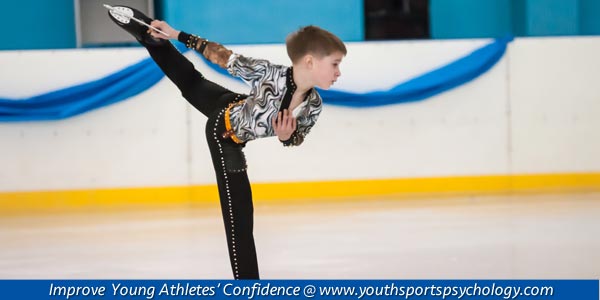
Helping Young Athletes Improve Without Pressure
Do you ever wonder how to help your young athletes make the most of their talents—without pressuring them?
If so, you’re not alone. In our survey of sports parents, a whopping 68% said they struggle with this question.
For example, your kids may be shy around their coaches and avoid asking questions that may help them excel.
Should you tell them, “Don’t forget to ask the coach about how to improve your free-throw shot!”
Or they may need some work on a specific skill. They know they need work, but aren’t putting out the effort.
- Should you remind them gently that they should put a little outside effort into boosting this skill?
- Should you invite them to the park to practice along with you?
- Should you talk to the coach about helping your child with this skill?
Here’s another example:
You notice that your sports kids freeze up when their friends from school come and watch them in a game….
- Should you point out this problem?
- Ask your athletes to tell their friends to avoid coming to their games?
As you can see, these are tricky issues and the answers are not always obvious.
You truly want to help, but your well-meaning attempts to help your athletes improve can seem like pressure, which is what they don’t need.
To help your sports kids make the most of their talents without pressuring them, you should, first of all, support them in a positive way.
You can support sports kids by:
- Going to their games
- Offering to help the coach out
- Being positive – that means providing positive feedback and avoid criticism.
- Cheering for all the kids on the team
- Biting your lip when you feel the urge to harp on their mistakes.
But if you also want to motivate them to try harder or try something different, you need to tap into what they love about playing sports:
- Do they love competing? If so, provide opportunities for them to compete—with you or with their friends.
- Do they love the social aspect of sports? If so, arrange some informal games with friends in your neighborhood.
- Do they love working on their skills? If your answer is yes, you might consider signing them up forsome outside clinics.
Most importantly, make sure your sports kids are having fun!
If you nag or pressure your kids, your efforts will backfire. Young athletes generally don’t respond well to parental pressure. We know first hand.
They need to practice because THEY want to practice—not because you want them to!
Related Articles on Youth Sports:
- How Parents Can Encourage Kids Without Pressure
- Sports Parents: Motivation or Pressure
- Sports Parents Who Pressure Their Kids
*Subscribe to The Sports Psychology Podcast on iTunes
*Subscribe to The Sports Psychology Podcast on Spotify
Help Young Athletes Boost Confidence in Sports!
Every day, we receive letters from parents like you who want their children and teens to excel in sports. However, these parents can see fear, doubt, and frustration on the faces of their kids who struggle with the “inner” game of sports. But these parents have no idea how to help their kids overcome the worries, expectations and self-defeating thoughts that prevent their young athletes from feeling confident and successful.
You can benefit from our 15-plus years’ of work in sports psychology and sports parenting research. Now, you can tap into our secrets to sports success through a cutting-edge, 14-day program that helps young athletes overcome the top “mental game” challenges that sports parents face—and the top challenges young athletes face.

